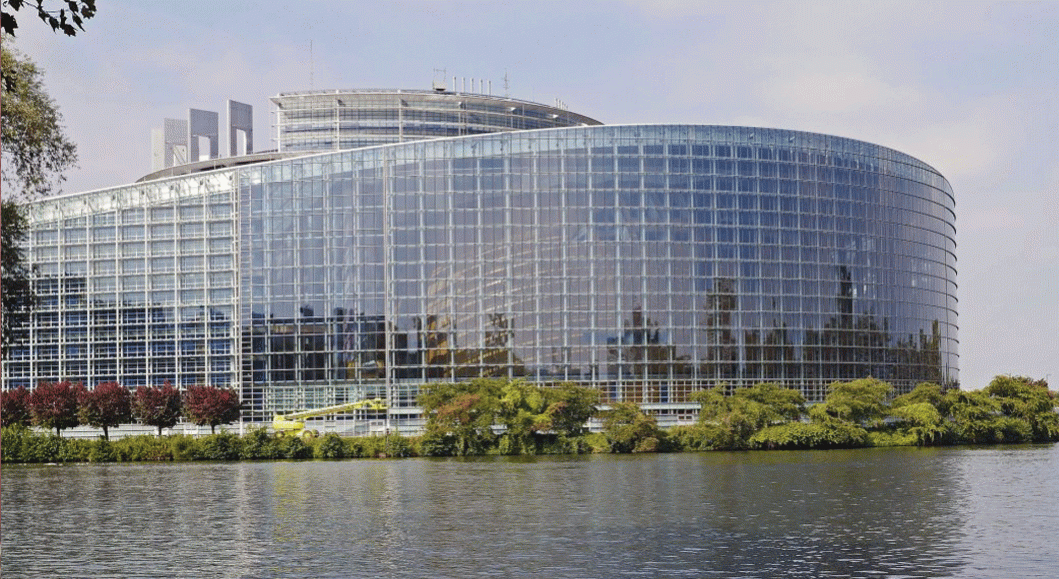In September 2016, the European Commission issued its proposal for a new EU Directive on copyright in the digital single market (DSM). Since then, IAF members in the EU have been lobbying for amendments to the proposed Directive in order to ensure that authors’ rights are protected.
In June, the EU Committee on Legal Affairs (JURI) adopted its report on the proposed EU Directive, an amended version of the original text drafted by the European Commission. The JURI report then went forward to the plenary of the European Parliament on 5 July but was rejected by Members of European Parliament (MEPs). Why? We asked IAF Member, ALCS to give a UK perspective on the issues and Richard Combes, Head of Rights and Licensing explains: “When the Commission first introduced the draft Directive two years ago, ALCS broadly approved its content. Article 4, for example, which confirms the UK model whereby educational exceptions are balanced by licensing remuneration. And Articles 14 to 16 which aim to ensure greater transparency and fairness in contacts between authors and those exploiting their works, including publishers and film and TV producers.”
These Articles have been debated and amended since September 2016, but they remain largely intact thanks to extensive lobbying by authors’ organisations, CMOs, as well as the International Federation of Reproduction Rights Organisations, the Society of Audiovisual Authors and others, says Combes. “In the JURI text, the contract provisions have been significantly improved by the addition of a new clause requiring that authors receive fair remuneration for online exploitation of their work.”
However, the main controversy surrounding the draft Directive on the DMS has always centred around Articles 11 and 13, which aim to increase the liability of online platforms when using externally derived content.
Article 11 would require online platforms, such as Facebook and Google, to pay publishers a fee when they aggregate external news content. The aim is to help support smaller news publishers and drive users to their home pages.
While arguments in favour of Article 11 have largely been led by press publishers, the JURI report includes a useful amendment clarifying that authors should share in any new revenue received by publishers. However, online platforms have dubbed this Article a ‘link tax’; a phrase that Richard Combes says “characterises the hyperbole surrounding the debate”.
Article 13 would put more onus on websites that allow users to post text, sounds, code or images to enforce copyright. Such websites will need to integrate some form of content-recognition system to review the copyright status of all uploaded material. IAF member, ALCS, supports the principle of Article 13 because it aims to level the playing field between platforms offering only licensed content (e.g. Spotify and Netflix) and those which offer access to music, film and so on, uploaded by users (e.g. YouTube). Currently, the latter argue that because they are not liable for user uploads they should pay less in licence fees in proportion to the volume of content on their sites – the so-called ‘value gap’.
Because such Articles in the proposed new Directive on the DSM threaten the business models of many online platforms, intense lobbying of MEPs is taking place by the likes of Google, which is reported to have spent tens of millions of dollars in doing so. Such companies have succeeded in swinging the emphasis of the debate away from the rights of creators, licensing and copyright towards a more emotive but nebulous emphasis on ‘human rights’ and ‘freedom’, says Combes. With phrases like ‘the EU’s bizarre war on memes’, ‘copyright police’ and ‘threaten the future of the internet as we know it’, and even ‘Artists Destroying the Internet’ now appearing in some of the media coverage, Combes says it’s harder to attract attention for the actual position: “for example, that Article 13 also encourages ‘fair licensing agreements’ as an alternative to filters, or the fact that exceptions can still apply for things like parodic memes”.
In The Parliament Magazine, a European Parliament spokesperson commenting on the polarised debate currently taking place around the proposed EU Directive said: “This has not been an easy process due to the need to balance the widely different interests at stake. But an update to the legislation is very much needed because the current laws dealing with copyright law date back to 2001, which may not seem that long ago but is an eternity in the online world. We should remember that back then Google was still in its infancy, Google News did not exist and YouTube was still three years down the line. It was a very different landscape. Today, we face a completely new world, so the copyright rules need to be upgraded. This is especially the case for the smaller artists and small-to medium-sized publishers, many of whom are struggling. There is a balance to be struck, but it is not an easy one… We are now, however, coming to the crunch where a balance between the two competing sides needs to be struck.”
Whilst debate rages in Europe, the situation in Canada provides a salutary warning about what can happen when copyright legislation is relaxed in the cause of ‘modernisation’. Since copyright exceptions were introduced to Canada’s Copyright Act in 2012, millions of books’ worth of copying, once licensed under a collective mechanism, have been claimed for free and without permission by Canada’s education sector. The resulting loss of income stands at approximately C$30 million per year, which for Canada’s relatively small domestic market is proving extremely damaging.
IAF Chair John Degen said: “There is, in my opinion, nothing progressive about broad exceptions to copyright, even those proposed for motherhood concerns like education and library collection. Instead, they represent a regressive deregulation designed to do little more than transform earned income for writers into cost savings for financial administrators and extra profit for free-culture digital businesses.”
Written for ALCS News by Caroline Sanderson: author, freelance books journalist and editor of ALCS News.

